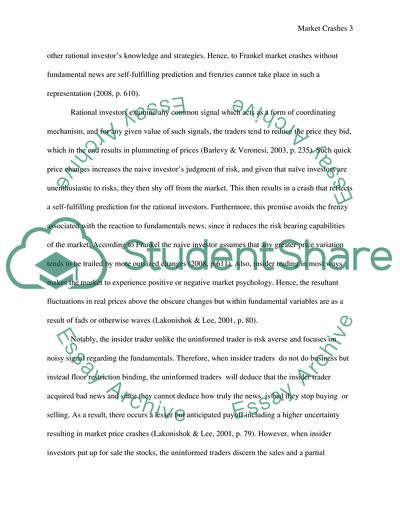Cite this document
(Why Markets Crash Without Fundamental News Essay, n.d.)
Why Markets Crash Without Fundamental News Essay. https://studentshare.org/macro-microeconomics/1796963-why-markets-can-crash-without-fundamental-newsyou-can-choose-another-one
Why Markets Crash Without Fundamental News Essay. https://studentshare.org/macro-microeconomics/1796963-why-markets-can-crash-without-fundamental-newsyou-can-choose-another-one
(Why Markets Crash Without Fundamental News Essay)
Why Markets Crash Without Fundamental News Essay. https://studentshare.org/macro-microeconomics/1796963-why-markets-can-crash-without-fundamental-newsyou-can-choose-another-one.
Why Markets Crash Without Fundamental News Essay. https://studentshare.org/macro-microeconomics/1796963-why-markets-can-crash-without-fundamental-newsyou-can-choose-another-one.
“Why Markets Crash Without Fundamental News Essay”. https://studentshare.org/macro-microeconomics/1796963-why-markets-can-crash-without-fundamental-newsyou-can-choose-another-one.


